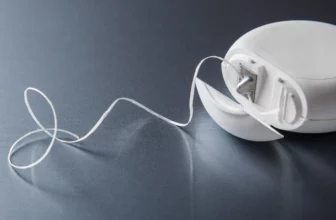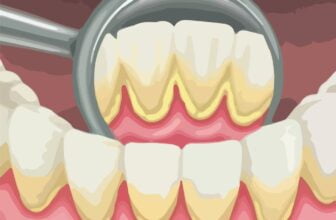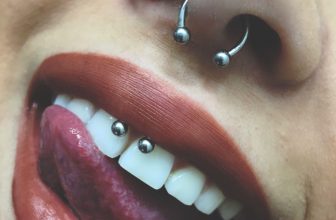What is Dental Plaque? Its Causes, Diagnosis, Tips to Get Rid of Dental Plaque?
When you first interact with someone, I bet you notice their teeth, and everyone would want a good first impression with a beautiful smile. Nobody likes dirty/ shabby teeth with stuff sticking around. Now, Dental Plaque is one such unwanted thing but inevitable and everyone has it.

What is Dental Plaque?
When you wake up in the morning, you feel a sticky layer on your teeth. When you move your tongue over your teeth, you can feel that unevenness and not the smooth surface. That sticky layer on your teeth is called Dental Plaque. It can be yellowish to off-white in color. Dentists usually call it a “Biofilm” since it has micro-organisms or germs that are living and are into a sticky film-like layer that is stuck on the surface of teeth. That sticky film provides the bad bacteria an environment to colonize and grow.
OK Now, Plaque and Tartar are not the Same. Want to Know Why?
Dental Plaque forms regularly on your teeth and can be removed easily by brushing, flossing, and maintaining a good oral hygiene. Now, when people do not practice good oral hygiene, this plaque tends to stay on the teeth. The saliva in our mouth is rich in minerals and enzymes and flushes the mouth every now and then. As we know, Plaque is sticky. It attracts minerals from the saliva and forms a hard layer that can range from yellow to off-white in color and is usually formed along the gum line in the front and back parts of the teeth. While you can remove Plaque, it is quite difficult to remove Tartar just by brushing or flossing. While flossing can help remove a little portion of the Tartar, for proper removal and prophylaxis you need a Dentist to examine and treat.

What causes Dental Plaque?
Sugar or Starchy foods host an environment feasible for bacteria. When the bacteria present in your mouth comes in contact with foods like bread, potato chips, pizzas, pasta, milkshakes, cola drinks; the bacteria releases acid that breaks these foods down and forms a sticky layer called Dental Plaque. If no proper oral hygiene is not maintained, it can lead to tooth decay.
How can you Diagnose if you have Dental Plaque?
The most convenient way to know that you have Dental Plaque is to run your tongue over your teeth and if you experience a rough, sticky layer then you can be certain its plaque. Other ways you can know you have it is constant bad breath, swollen gums, bleeding gums while brushing.
During your regular dental check-ups, your dentist could easily identify Dental Plaque while examination. Hence it is always advisable to visit your dentist regularly.
What happens if you neglect the Dental Plaque?
First off, if you neglect Dental plaque and do not take good care of your oral hygiene, it will soon turn to Tartar/ Calculus and harden on your teeth making it look shabby and nobody wants that. Apart from the effect on the aesthetics, it has effects that could cause infection and pain. It can lead to cavities in the tooth, infection, tenderness, and bleeding of the gums. These conditions require intervention from Dentists and might even require Gum surgery also known as Gingival surgery. So neglecting is not an option for us.
Dental Plaque Prevails in what People?
It definitely prevails in all the people but the people who are Dental Plaque’s favorites are the ones who indulge in high-sugar foods, Starchy foods like burgers, pizzas, fries, etc. It is also likely to affect people who have dry mouth because of any ongoing medications or who have certain conditions like Sjogren’s syndrome in which saliva is produced less. People who smoke are also affected by Dental Plaque. The patients who have undergone radiation therapy in the head and neck region might also develop Dental plaque due to less production of Saliva.

Photo off Human teeth with gingivitis (Gum disease) with multiple caries.
How can you get Rid of Dental Plaque?
You must have well-established by now that maintaining a good oral hygiene can help you stay away from Dental Plaque. Brushing, flossing, and using a mouth wash can help you get rid of the Plaque. According to American Dental Association, brushing twice a day with a soft-bristle brush and a fluoride toothpaste is advised.
The Canadian Dental Association has mentioned a detailed description of how to maintain good oral health. The association advises brushing 2-3 minutes, twice a day followed by thoroughly flossing and scraping or brushing the tongue to get rid of the food particles that might have accumulated. Also, gently massage your gums to stimulate blood flow and to get rid of any plaque. An oral rinse or mouthwash which is free from alcohol is recommended post brushing to keep the bad bacteria away.
Takeaway Tips to Maintain Good Oral hygiene and keep Dental Plaque at bay
- Examine your teeth and mouth regularly after brushing.
- Stop/ reduce Alcohol and Smoking.
- Brush at least twice a day or as required and 30 mins after a sugary-starchy meal.
- Replacing your toothbrush after every 3 months is highly recommended.
- Floss once a day and brush/ scrape your tongue.
- Your favourite drink to go should be Water. It cleanses the mouth and keeps your mouth moist. Reducing sugary colas is recommended.
- Use a fluoride toothpaste and alcohol free mouth rinse. To choose the right products you can visit the Canadian/ American Dental Association website.
- Maintain a good diet rich in fiber, protein, healthy fats, and all essential nutrients and reduce intake of sugar loaded or starchy food.
- Make your Dentist your best friend and show up for regular dental check-ups. Visit your Dentist at least twice a year.
- Lastly, here is a video put forth by the American Dental Association on how you should brush your teeth in order to ensure maximum cleaning.
References
Periodontitis: A Useful Reference. (2017). Croatia: IntechOpen.





